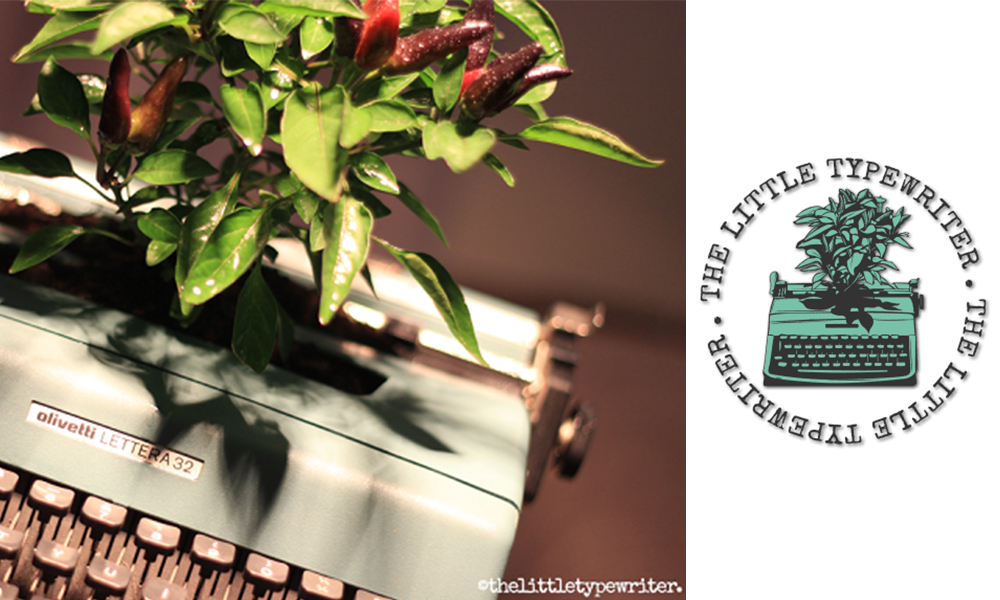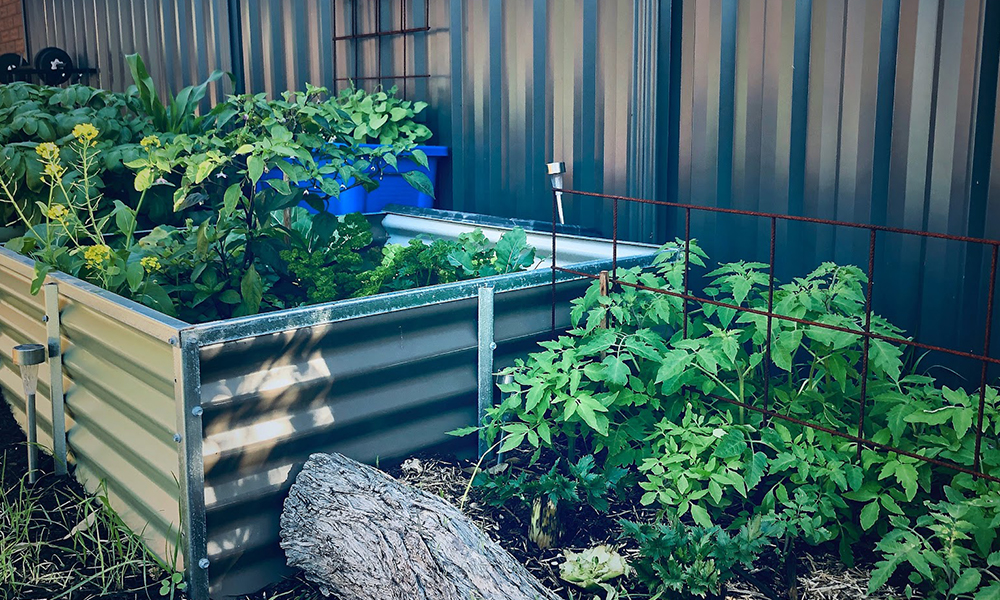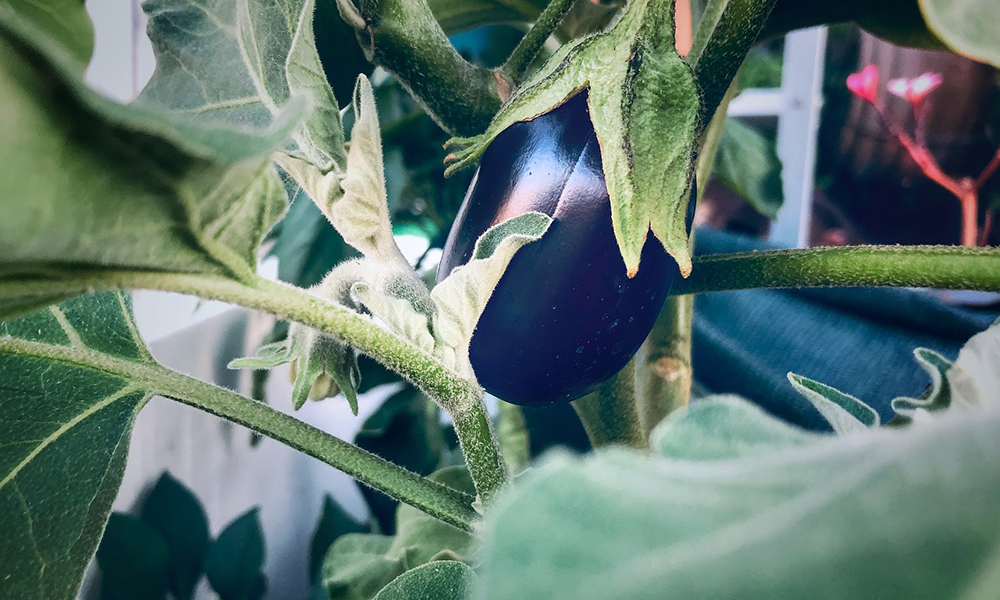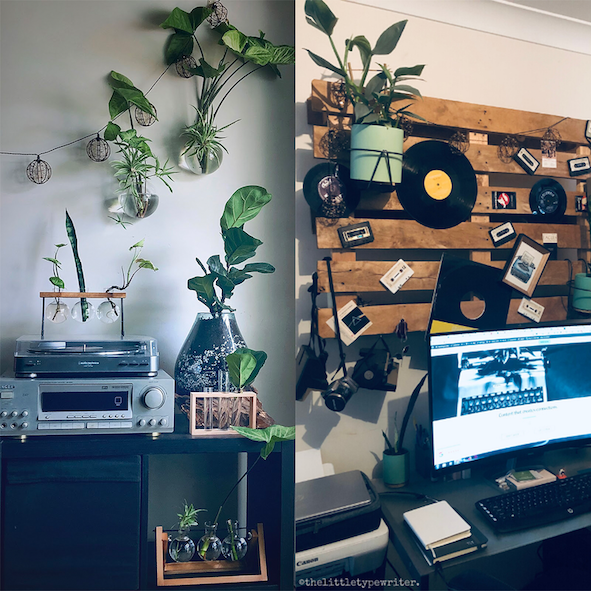One of the things the pandemic has taught us, is to make use of what we already have. Resources, strategic materials and everyday items that were once taken for granted, now hold a much more purposeful role in many people's lives.
Today, more veggie gardens are sprouting, the DIY trend is becoming the new normal and communities have become more productive, resilient and self-reliant. Change is in action. But there's still more that can be done to control consumption and encourage sustainability well after the pandemic is over.
Life in lockdown has pushed many people worldwide to stop and reconsider the environment. As a result, wastefulness and bad habits have been highlighted but hopefully these habits are reset as eyes have opened to their wider effects.
Sustainable changes have proven benefits for your health, wallet, utility bills and the environment. Yet the desire for a greener lifestyle isn't just about limiting waste or buying eco-friendly products. It's making small, everyday differences to reduce your carbon footprint and encourage a better and more efficient way of living.
Here are a few ways to incorporate planet strong practices into your home and business.
Adopt the 5 R's
Australia landfills more than 21 million tonnes of solid waste each year.
Consequently, more people are joining the fight for a zero-waste world. Landfills are horrible for the environment, contaminating soil and emitting harmful gasses into the air. But the zero-waste movement reevaluates our approach to trash. By switching to reusable products, eliminating disposable packaging and applying a bit of creativity, you significantly cut what you're discarding.
You don't have to commit entirely to zero-waste to make a difference though. Adopting the 5 R's will help create an eco-friendly home and office.
1. Refuse: Say no to products that damage your health and the environment. Send paperwork digitally, only print if it's necessary and when you do buy a new item, take a moment to think about whether it's something you'll use long term. If not, is it worth buying? Find ways to shop ethically, which means knowing how the products are produced and where they're coming from.
2. Reduce: The fewer items you demand, the less strain on natural habitats. Remember, you control your spending and consumption.
3. Reuse: Choose to reuse before buying new or abandoning. Ditch the single-use coffee capsules and replace them with stainless steel reusable pods that don't end up in landfill. Swap plastic bottles with reusable alternatives, donate, repurpose or swap your clothes rather than throwing them out, pack lunches in reusable lunch boxes and reuse papers lying around the house and office. Glass jars also make great storage tubs or drinking glasses.
4. Repurpose: Give old or damaged items a new life by repurposing them into something different. I used a broken typewriter as the creative vision behind my logo, as it represented the core values of my 'green' business. It still has a place in my garden and brand today. The ideas are endless for ways to repurpose. Why not get creative with these projects?
5. Recycle: Recycling is the last resort, not the solution to controlling waste. The weight of waste cannot be lifted with recycling methods alone. If you have no alternatives, recycle aluminium, cardboard, paper and plastic or repurpose instead of throwing away.

Fortunately, many businesses are taking advantage of repurposing or recycling in creative ways. These business cards use recycled t-shirt offcuts. They're tree-free and repurpose materials that would normally get thrown away.
Tip: Swap products and purchases for natural, cruelty-free or homemade alternatives. Make ethical shopping decisions by choosing socially and environmentally responsible stores, op shops and local health stores.
Create Your Own Compost
Start a home or office compost to maintain a healthy garden, improve your soil and minimise trash. Food scraps contribute to 5.3 million tonnes of waste each year - it's a big problem.
Why?
Because food in landfill poisons groundwater and releases toxic greenhouse gases. The journey of food to plates is already long and resource-intensive. Composting helps minimise the energy and labour, and reduces food waste from the beginning - all whilst decreasing your garbage!
There are three elements to making nutrient-rich compost at home:
- Compost bin or container: No need to buy fancy. Use what you have around the house, a large tub or bin, or buy a compost bin. A wooden crate kit or compost tumbler will both do the same job, but the latter has a speedier process. Because tumblers retain heat and moisture better than stationary compost bins, they compost in weeks instead of months. Base the size on how much plant and food matter you have at your disposal.
Tip: Position a stationary compost bin in direct sunlight where it gets as much heat as possible. Keep the mixture wet to avoid drying out. - The ingredient mix: A low-maintenance bin needs green and brown waste to thrive. Food scraps, coffee grounds and grass clippings are high in nitrogen for the green elements. Shredded paper, cardboard, straw, wood chips and dry leaves are ideal for brown waste. Layer together in a stationary bin, tumblers will mix it for you by turning the side of the machine.
- Maintenance: Jump-start your new compost with a compost accelerator. If it's a tumbler, turn it once a week or use a shovel to break compost up in stationary bins and stir. Don't compost meat and dairy products as they'll attract pests. To work well, compost needs air, heat and happy bacteria (kitchen waste). When it's ready to use on your garden, it'll smell earthy and feel crumbly. If it smells or becomes too wet, balance the mix with more brown waste and turn it often to keep it aerated. Learn about moisture control.
Grow Your Own
Cultivating produce at home solves many problems. It's more cost-effective than buying fresh groceries at the store, you're getting an organic health kick, reconnecting with nature and creating cleaner surroundings. If you work from home more now, gardening is also a great productivity booster and offers an excuse to take a break and soak up the sunshine!
You don't need a lot of space to get some crops going. Vertical gardens and other urban gardening projects are easy to do and need little room.
Here are some ideas from my home garden below. Seeds to start growing this time of year are spinach (the Malabar spinach is a favourite, sweet-tasting spinach which grows as a vine), radish, snow peas, beans, pak choi, kale, broccoli, cauliflower, beetroot, carrots, lettuce, onion, Asian greens, coriander, chilli and artichoke. Once established, they're easy to care for. Nothing beats harvesting fresh veggies to cook with and eat, and scraps go straight back into your garden.
Tip: Spend less, propagate more! Learn to take cuttings and swap with friends. Divide plants to stock up at home. When you do make plant purchases, don't forget to check the clearance section at your local nursery. With a little love, you can green them up again.

Buy Local
Choose to buy local when you do make purchases. Shorter food chains create less waste. So, source supplies as close to home as possible. Since Covid-19, supporting Australian farmers and businesses has become even more critical. Many small businesses adapted their products or services to stay afloat, especially restaurants and bars converting to takeaway options. Sadly, many businesses had to shut shop. Business as usual will never be what it used to. But, it's not all bad news - high tourism communities have regrown and businesses have learnt to think outside the box. The importance of community support to keep things running is one of the biggest lessons to come out of this.
Add More Greenery to Your Surroundings
Living among greenery is great for your health. Green spaces in urban areas and working near plants act as a natural stress and mood booster.
Plants are important because they:
- Improve air quality
- Strengthen your immune system and function
- Boost productivity levels
- Lower utility bills
- Encourage physical activity, increasing physical and mental health benefits
- Ease stress and anxiety levels
- Enhance learning abilities and cognition levels
- Foster better sleep
- Are effective for cooling and energy efficiency
Whether you're inside or out, greening your surroundings isn't only about the visual aesthetics. Some of the best plants to add to your home or office are:
- Devil's Ivy - hard to kill
- Mother-in-law's Tongue - a rugged indoor plant
- Spider Plant - an air-cleaning plant that's non-toxic to pets
- Butterfly Palm - good for healthy lungs, as it absorbs harmful pollutants in the air
- Aloe Vera - used for medicinal purposes (antibacterial, burns and wounds, skin health), improves air quality
- Golden Pothos - easy to propagate, increases humidity, low-light, durable
- Fiddle-Leaf Fig - a rainforest plant that controls humidity, can be propagated, crowned the top design plant, grows tiny or huge
- Rubber Plant - needs bright, indoor light, large leaves breakdown airborne toxins, promotes stomach health (young leaves are eaten as a vegetable), natural anti-inflammatory and analgesic
- Swiss Cheese Plant - for well-lit spots, produces more oxygen than other plants, fast-growing
- Forever Geen - easy to grow and propagate, great for shady spots
- Rattlesnake - indoor plant, controls humidity

Work Smart
Did you know working more productively lowers your impact on the environment?
Use energy more efficiently by watching your usage and finding ways to decrease it. Tools like Toggle or FocusBooster train you to work in sprints and make better use of your time.
- Use the 5-15 minute breaks to water the plants, prep dinner or take a moment to soak up the fresh air instead of scrolling through Facebook using unproductive power
- Make a meal plan to limit food wastage
- Cut up old clothes into cleaning rags to use for work desk spills or wiping down benches
- Keep a reusable water bottle on your desk, rather than buying plastic water bottles
Keep Educating
Nothing is more valuable than accurate information. Keep your finger on the pulse by staying educated. Learn ways to lower your consumption and switch to better habits. From green building materials and appliances in your home to conscious shopping, minimising waste and conserving resources, there are many options you can do to create a healthier lifestyle and a greener future.
Written by Jayde Walker
What could be mistaken as a Cameron Crow movie (Almost Famous), Jayde Walker started out as an underage music journalist with one goal – to be a writer. Today, she's a professional Perth Copywriter and Outreach Prodigy who's been helping businesses tell their story for over 15 years. Jayde was first published in the West Australian in 1999 and wrote for local and international music magazines.
After six years as a Senior Content Writer, Jayde now helps businesses create better content, connect with customers and get the most value from their stories through the little typewriter. Jayde specialises in writing about property investment, building design, small business, travel and home improvement industries. She has an undying love for vintage typewriters, 90's rock music, streetpress and exploring people's 'why'.
All images supplied by the author.
